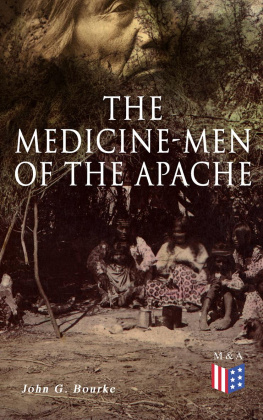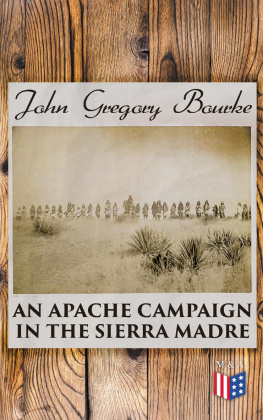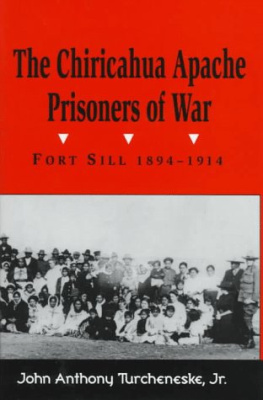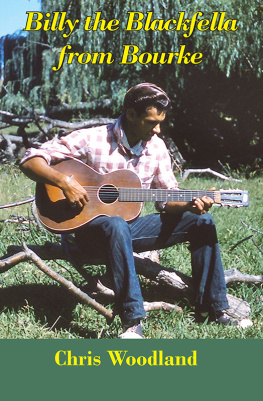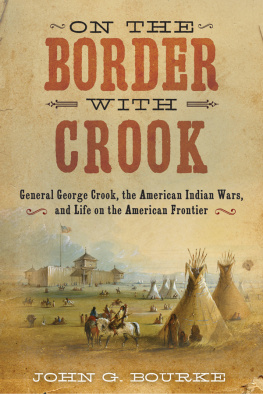Table of Contents
LETTER OF TRANSMITTAL.
Washington, D. C. , February 27, 1891.
Sir: Herewith I have the honor to submit a paper upon the paraphernalia of the medicine-men of the Apache and other tribes.
Analogues have been pointed out, wherever possible, especially in the case of the hoddentin and the izze-kloth, which have never to my knowledge previously received treatment.
Accompanying the paper is a bibliography of the principal works cited.
I have the honor to be, very respectfully, your obedient servant,
John G. Bourke ,
Captain, Third Cavalry, U. S. Army.
Hon. J. W. Powell ,
Director Bureau of Ethnology.
Chapter I.
The Medicine-Men, Their Modes of Treating Disease, Their Superstitions, Paraphernalia, Etc.
The Caucasian population of the United States has been in intimate contact with the aborigines for a period of not less than two hundred and fifty years. In certain sections, as in Florida and New Mexico, this contact has been for a still greater period; but claiming no earlier date than the settlement of New England, it will be seen that the white race has been slow to learn or the red man has been skillful in withholding knowledge which, if imparted, would have lessened friction and done much to preserve and assimilate a race that, in spite of some serious defects of character, will for all time to come be looked upon as "the noble savage."
Recent deplorable occurrences in the country of the Dakotas have emphasized our ignorance and made clear to the minds of all thinking people that, notwithstanding the acceptance by the native tribes of many of the improvements in living introduced by civilization, the savage has remained a savage, and is still under the control of an influence antagonistic to the rapid absorption of new ideas and the adoption of new customs.
This influence is the "medicine-man."
Who, and what are the medicine-men (or medicine-women), of the American Indians? What powers do they possess in time of peace or war? How is this power obtained, how renewed, how exercised? What is the character of the remedies employed? Are they pharmaceutical, as we employ the term, or are they the superstitious efforts of empirics and charlatans, seeking to deceive and to misguide by pretended consultations with spiritual powers and by reliance upon mysterious and occult influences?
Such a discussion will be attempted in this paper, which will be restricted to a description of the personality of the medicine-men, the regalia worn, and the powers possessed and claimed. To go farther, and enter into a treatment of the religious ideas, the superstitions, omens, and prayers of these spiritual leaders, would be to open a road without end.
As the subject of the paraphernalia of the medicine-men has never, to my knowledge, been comprehensively treated by any writer, I venture to submit what I have learned during the twenty-two years of my acquaintance with our savage tribes, and the studies and conclusions to which my observations have led. While treating in the main of the medicine-men of the Apache, I do not intend to omit any point of importance noted among other tribes or peoples.
First, in regard to the organization of the medicine-men of the Apache, it should be premised that most of my observations were made while the tribe was still actively engaged in hostilities with the whites, and they cannot be regarded as, and are not claimed to be, conclusive upon all points. The Apache are not so surely divided into medicine lodges or secret societies as is the case with the Ojibwa, as shown by Dr. W. J. Hoffman; the Siouan tribes, as related by Mr. J. Owen Dorsey; the Zui, according to Mr. F. H. Cushing; the Tusayan, as shown by myself, and other tribes described by other authorities.
The Navajo, who are the full brothers of the Apache, seem to have well defined divisions among their medicine-men, as demonstrated by Dr. Washington Matthews, U. S. Army; and I myself have seen great medicine lodges, which must have contained at least a dozen Apache medicine-men, engaged in some of their incantations. I have also been taken to several of the sacred caves, in which solemn religious dances and other ceremonies were conducted under the same superintendence, but never have I witnessed among the Apache any rite of religious significance in which more than four or five, or at the most six, of the medicine-men took part.
The difficulty of making an accurate determination was increased by the nomadic character of the Apache, who would always prefer to live in small villages containing only a few brush shelters, and not needing the care of more than one or two of their "doctors." These people show an unusual secretiveness and taciturnity in all that relates to their inner selves, and, living as they do in a region filled with caves and secluded nooks, on cliffs, and in deep canyons, have not been compelled to celebrate their sacred offices in "estufas," or "plazas," open to the inspection of the profane, as has been the case with so many of the Pueblo tribes.
Diligent and persistent inquiry of medicine-men whose confidence I had succeeded in gaining, convinced me that any young man can become a "doctor" ("diyi" in the Apache language, which is translated "sabio" by the Mexican captives). It is necessary to convince his friends that he "has the gift," as one of my informants expressed it; that is, he must show that he is a dreamer of dreams, given to long fasts and vigils, able to interpret omens in a satisfactory manner, and do other things of that general nature to demonstrate the possession of an intense spirituality. Then he will begin to withdraw, at least temporarily, from the society of his fellows and devote himself to long absences, especially by night, in the "high places" which were interdicted to the Israelites. Such sacred fanes, perched in dangerous and hidden retreats, can be, or until lately could be, found in many parts in our remote western territory. In my own experiences I have found them not only in the country of the Apache, but two-thirds of the way up the vertical face of the dizzy precipice of Taiyalana, close to Zui, where there is a shrine much resorted to by the young men who seek to divine the result of a contemplated enterprise by shooting arrows into a long cleft in the smooth surface of the sandstone; I have seen them in the Wolf Mountains, Montana; in the Big Horn range, Wyoming; on the lofty sides of Cloud Peak, and elsewhere. Maj. W.S. Stanton, Corps of Engineers, U. S. Army, ascended the Cloud Peak twice, and, reaching the summit on the second attempt, he found that beyond the position first attained and seeming then to be the limit of possible ascent, some wandering Indian had climbed and made his "medicine."
While it is regarded as a surer mode of learning how to be a medicine-man to seek the tuition of some one who has already gained power and influence as such, and pay him liberally in presents of all kinds for a course of instruction lasting a year or longer, I could learn of nothing to prohibit a man from assuming the rle of a prophet or healer of the sick, if so disposed, beyond the dread of punishment for failure to cure or alleviate sickness or infirmity. Neither is there such a thing as settled dogma among these medicine-men. Each follows the dictates of his own inclinations, consulting such spirits and powers as are most amenable to his supplications and charms; but no two seem to rely upon identically the same influences. Even in the spirit dance, which is possibly the most solemn function in which the Apache medicine-men can engage, the head-dresses and kilts adhered closely enough to the one pattern, but the symbolism employed by each medicine-man was entirely different from that adopted by his neighbors.

